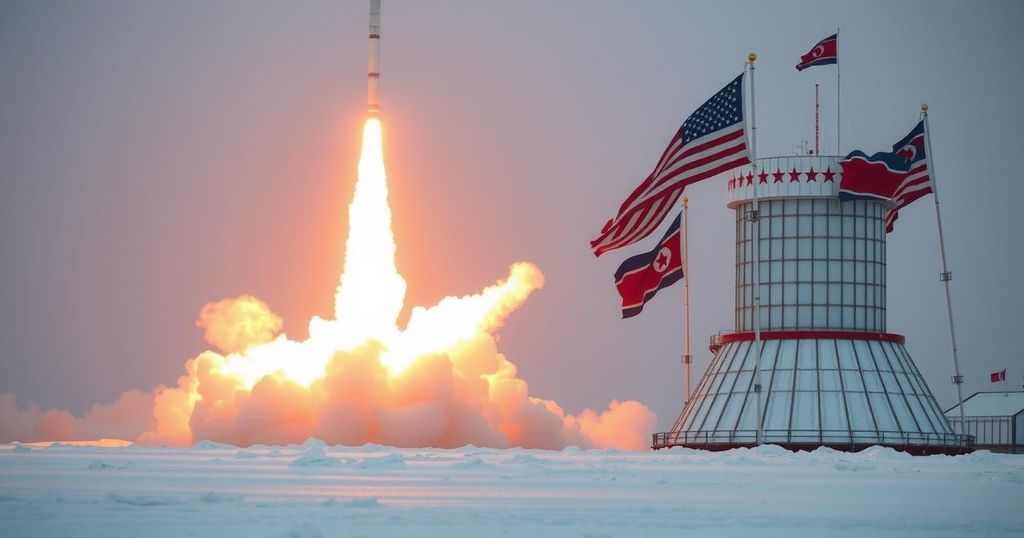North Korea launched a missile on Monday during U.S. Secretary of State Antony Blinken’s visit to South Korea, where he warned about Pyongyang’s cooperation with Russia on advanced technology. Blinken condemned the missile test and emphasized the importance of trilateral cooperation with Japan amidst political turbulence in South Korea surrounding President Yoon Suk Yeol’s impeachment.
On Monday, North Korea launched a missile as U.S. Secretary of State Antony Blinken visited South Korea, where he expressed concerns regarding Pyongyang’s expanding cooperation with Russia in advanced space technology. This missile test occurred amidst political unrest in South Korea, where President Yoon Suk Yeol faced impeachment and was residing in his official residence. Concurrently, Blinken emphasized the necessity for enhanced trilateral exercises and intelligence-sharing between the U.S., South Korea, and Japan in response to North Korea’s provocative actions.
The South Korean military reported that the missile traveled approximately 1,100 kilometers (680 miles) and fell into the sea. At a joint press conference with his South Korean counterpart, Cho Tae-yul, Blinken condemned the missile launch and highlighted the increasing support North Korea was reportedly receiving from Russia, suggesting that they were already receiving military equipment and training. He underscored apprehensions that Russia aims to share advanced space and satellite technologies with North Korea, thus undermining the global efforts aimed at restricting Pyongyang’s nuclear ambitions.
Blinken’s remarks came on a significant day, marking the anniversary of the January 6 insurrection in the United States, while protests related to South Korean politics unfolded near his location. The Secretary of State reiterated U.S. confidence in South Korea’s institutions amidst Yoon’s struggle for control and the political opposition’s challenging stance on North Korea and Japan-related policies.
Moreover, Blinken assured South Korea’s ongoing commitment to the principles established during prior summits with Japan and reiterated that the U.S. remains steadfast in supporting South Korea’s democracy and government integrity. As tensions between the U.S. and North Korea continue to escalate, the implications of inter-country relations involving South Korea, Russia, and Japan warrant close observation in the future.
The article highlights the recent missile launch by North Korea amid a significant visit from U.S. Secretary of State Antony Blinken to South Korea. This incident underscores the ongoing volatility of tensions in the Korean Peninsula and highlights growing concerns over North Korea’s potential partnership with Russia, particularly in terms of military and technological advancements. Additionally, the backdrop of political unrest in South Korea due to President Yoon’s impeachment adds complexity to diplomatic relations in the region.
In conclusion, North Korea’s recent missile test serves as a vital reminder of the persistent challenges facing U.S. diplomacy in Southeast Asia. Blinken’s visit underscores the need for trilateral cooperation between the U.S., South Korea, and Japan to counterbalance the growing military and technological collaboration between North Korea and Russia. The political landscape in South Korea further complicates these dynamics, necessitating continued vigilance and strategic engagement by international stakeholders.
Original Source: www.dawn.com






